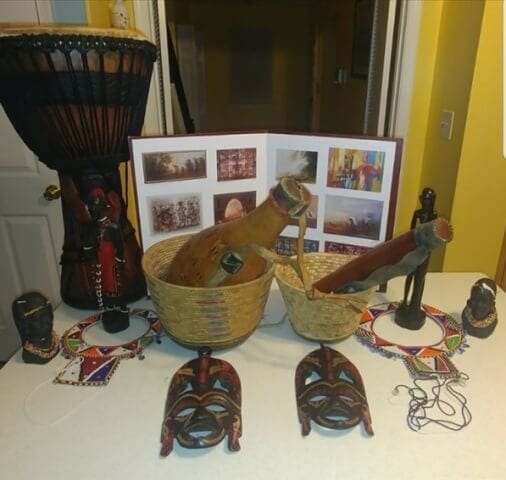Sheillah Maonga
London, United Kingdom

My mind was always stubbornly set against African medicine and I did not pay much heed to it even when I visited Africa for two weeks each year. It was something that had no bearing on me—until last year when I took my child to see my mother.
My mother lives in Kenya and had not yet seen the baby. She wanted to be there at his birth but was denied a visa. The British Embassy said she did not show sufficient ties to Kenya, which made the immigration officer conclude that she would not leave the UK once her visa ran out. I had planned to get her to see the baby as soon as it was born, but could not travel because of a birth injury sustained during labor.
When I recovered enough to travel, the baby was already two years old. My mother cried when she held him in her arms—she had waited so long. He was her only grandchild and had a special place in her heart. She cried so hard that I feared her blood pressure would rise, as it always did when she was excited.
On the first night at my mother’s house my son’s eczema flared up. He was writhing in pain and itching virulently. The prescribed emollient lotions and steroid creams were not giving him much solace; they never did during a flare-up. I could only hold him as he cried and scratched. I hated to see my child in so much discomfort. Because of his eczema he had never had soft skin, but now his skin was red and angry, some areas oozing and making it look like wet sandpaper. I silently cursed whatever force had signed my son up for this condition.
My mother left the room, then returned with a little tuft of woven reed. Inside was something that looked like grey ash, like something from a witch’s lair. I could not even touch it because it looked so weird and off-putting. She asked me to pass the baby over to her so that she could apply that ashy thing to him. I did so hesitatingly, not sure what that powder was and how it would react on my baby’s skin. But I was desperate. The baby was in extreme agony and I would try anything to soothe his discomfort. I consoled myself that since his skin already looked hideous the powder would not make it any worse.
She dabbed her finger on the ash, then rubbed that finger on the skin where he was scratching.
Whenever she applied it on a body part, he stopped scratching there. When she had applied it all over his body he was not itching anymore, and he soon fell asleep.
I reached out and took the medicine tuft from my mother, the earlier disgust now gone. This was a miracle cure. I looked at it, sniffed it—it was odorless. I licked it—it had no taste.
I asked my mother what it was. She said it was an herbal medicine made from the roots and leaves of several plants that had been used forever. It was used to cure forty human illnesses. When I asked what illnesses it was used for, she said she had only used it for skin ailments, for reducing fever, and treating constipation. The medicine had treated these ailments successfully.
My heart skipped a beat when she mentioned constipation. The birth injury I had sustained had left me with horrendous constipation, leaving me in agony for days on end. I had to take several tablets several times a day and the doctors said I would have to take them for life. If I stopped taking them, as I had done for one week, I would get worse and have to go to hospital for an invasive and painful procedure.
I did not mind taking the tablets as much as I minded the painful moments in the toilet every three days. I confessed to my mother that I suffered from constipation, a sore and embarrassing subject, even with my mother.
Mother went away and brought a glass of water. She poured a little of that medicinal ash in the water, stirred it, and gave me to drink. She said it would work in minutes. I did not believe this would happen, and I doubted that this African remedy would work at all. But my mother was right; I was wrong.
I returned to the UK eight weeks later with a package of African medicine in my bag. My son’s rashes had disappeared and for the first time he had baby soft skin. He looked dashing. I did not have to use the emollient as much as before and he had no flare ups during the eight weeks we spent in Kenya. It was the longest he had ever gone without an episode.
As for me, I was also cured. My bowel movements were regular and painless. For the first time since having my baby, I was able to go to the toilet daily without any effort. The African medicine seems to have worked for us, and I was also cured of my skepticism.
SHEILLAH MOANGA was born in Kenya but currently resides in London, UK. She has been writing works of fiction, including poetry, plays, and short stories since childhood. She has been exposed to both conventional western medicine and traditional African medicines having lived in both Europe and Africa. She believes in all types of medicines in the world and that there is something to be learned from all types of medicine cultures.
Highlighted in Frontispiece Volume 10, Issue 3 – Summer 2018

Leave a Reply